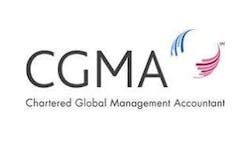Europe's continuing debt crisis, slower growth in China and political and fiscal uncertainty in the United States prompted an increasingly negative outlook from management accountants in a new survey.
The CGMA Global Economic Index fell 7 points to 58 from the first quarter 2012 reading of 65. The index, produced by the American Institute of CPAs and the Chartered Institute of Management Accountants, is based on polling of 600 CEOs, CFOs and senior management accountants from more than 60 countries.
In the United States, 36% of of management accountants surveyed are optimistic about the domestic economy, down from 44% in the prior quarter. Asked about their own organizations, 51% of U.S. respondents are optimistic about prospects for their companies, a decrease of 7 percentage points over last quarter.
Only 45% of manufacturing respondents are now optimistic about the outlook for their own business, down 18% from the first quarter of 2012. Just 41% of technology respondents expressed optimism about their firms.
"Our survey shows there is still a risk of a knee jerk reaction by organizations, with economic pessimism leading to an investment freeze on areas that are the bedrocks of future success such as training, recruitment, R&D and capital investment,” said David Rowsby, Regional Director-Europe, CIMA. “Organizations should resist short-term pressure from the investment community and not be distracted from their longer term growth plans."
The survey showed weak prospects for employment growth. Companies globally expect to increase headcount by only .6%, down from the 1.6% increase predicted three months ago. With the exception of the retail and wholesale trade, the reduced projections for headcount growth were spread across all industry sectors. In the U.S., projections declined from 2.4% to 1.3%. While hiring growth remains weak, 34% of U.S. management accountants said their businesses are operating with too few employees.
Worries about inflation subsided somewhat for most regions, reflecting the recent falls in commodity prices. In the U.S., fear of inflation dropped from 49% last quarter to 33%. Some 63% of Asian companies continue to be concerned about inflation. The number of European companies concerned about deflation increased to 15% from 11% in the first quarter of 2012.
Financing continues to be most challenging for Asian companies with more than a third, or 37%, expecting greater difficulty, followed by those in emerging economies, 28%, and Europe, 28%. The U.S. was the exception, with only 9% expecting more difficulty in obtaining financing.
The 10 factors included in the CGMA Global Economic Index include: global economy optimism; domestic economy optimism; organization optimism; expansion plans; revenue; profits; employment; IT spending; other capital spending; training & development.
About the Author
Steve Minter
Steve Minter, Executive Editor
Focus: Leadership, Global Economy, Energy
Call: 216-931-9281
Follow on Twitter: @SgMinterIW
An award-winning editor, Executive Editor Steve Minter covers leadership, global economic and trade issues and energy, tackling subject matter ranging from CEO profiles and leadership theories to economic trends and energy policy. As well, he supervises content development for editorial products including the magazine, IndustryWeek.com, research and information products, and conferences.
Before joining the IW staff, Steve was publisher and editorial director of Penton Media’s EHS Today, where he was instrumental in the development of the Champions of Safety and America’s Safest Companies recognition programs.
Steve received his B.A. in English from Oberlin College. He is married and has two adult children.
